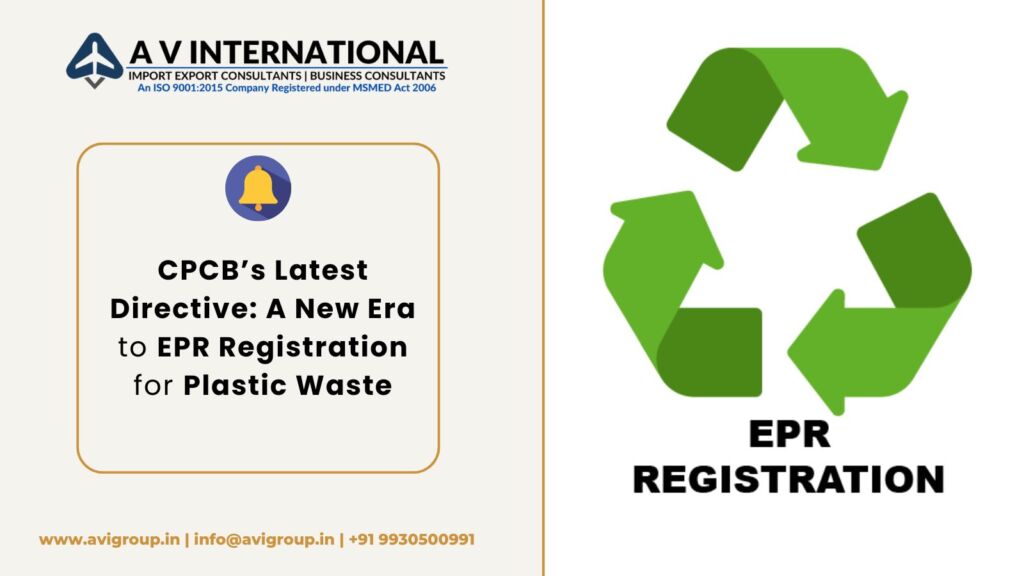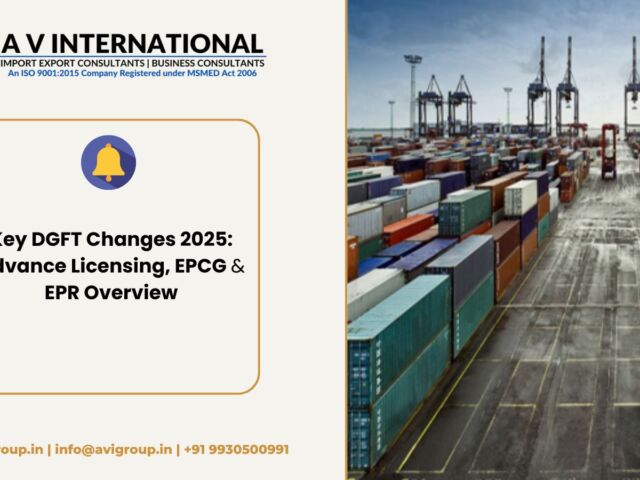CPCB’s Latest Directive: A New Era to EPR Registration for Plastic Waste

Introduction:
Environmental sustainability is no longer just a buzzword – it has become a necessity and our responsibility. With industries growing at an unprecedented rate, pollution control and waste management have taken centre stage. Recognizing the urgency, the Central Pollution Control Board (CPCB) has introduced a new directive on February 24, 2025, aimed at enforcing stricter environmental compliance. A crucial aspect of this directive is the push for EPR Registration for Plastic Waste, ensuring industries take full responsibility for the plastic they produce and use.
Implementation of EPR Registration for Plastic Waste:
The rising concerns over plastic waste have driven policymakers to reinforce EPR Registration for Plastic Waste, making it an essential requirement for manufacturers, importers, and brand owners. The concept of Extended Producer Responsibility (EPR) is not new, but its implementation has often fallen short due to lack of enforcement. This directive seeks to bridge that gap by making it mandatory for industries to actively manage their plastic waste, either by setting up their own recycling initiatives or collaborating with authorized waste processors.
For businesses, this directive is both a challenge and an opportunity. Those who fail to comply with EPR could face severe penalties, including fines and restrictions on their operations. On the other hand, companies that embrace the change can enhance their brand reputation and build trust with environmentally conscious consumers. Sustainability is becoming a major factor in consumer choices, and businesses that demonstrate commitment to responsible waste management are likely to gain a competitive edge. Moreover, integrating EPR Registration for Plastic Waste into business strategies can lead to long-term cost savings by reducing dependency on raw materials and promoting the use of recycled plastics.
Better waste collection and Improved Recycling Infrastructure:
The directive also highlights the need for better waste collection, improved recycling infrastructure, and stricter monitoring systems. Industries must now submit regular reports on their EPR compliance, ensuring transparency and accountability. This move is expected to significantly reduce plastic waste accumulation in landfills and water bodies, contributing to a cleaner and healthier environment. Furthermore, companies will be encouraged to rethink their packaging strategies, shifting toward more sustainable alternatives that reduce overall plastic consumption.
For the public, this directive brings hope for cleaner cities and a healthier future. By making EPR Registration for Plastic Waste a priority, authorities are ensuring that the burden of plastic waste does not fall solely on consumers and municipal bodies. Instead, industries will be held accountable for their environmental impact, creating a more balanced and responsible approach to waste management. Over time, this could lead to significant improvements in air and water quality, benefiting communities at large.
Conclusion:
As industries adjust to these new regulations, the question remains: will businesses fully comply, or will enforcement challenges arise? The success of this directive depends on collective efforts, from policymakers to corporations and consumers. While challenges in implementation are inevitable, one thing is certain—EPR Registration for Plastic Waste is no longer just an option; it is a necessity for a sustainable future. This is not just about compliance but about reshaping the way industries view environmental responsibility. The road ahead is challenging, but with the right initiatives, India can take a significant step towards a greener tomorrow.
DGFT
Legal
Company Secretarial
DGFT Notifications
Others
Recent Posts
- Top Export Compliance Mistakes: DGFT Advance Authorization, EPCG & CPCB (2025 Guide)
- Environmental Clearance CPCB Quick Guide for Exporters
- DGFT e-BRC Rule 2025: Key Update for Advance Authorization & EPCG Holders
- Key DGFT Changes 2025: Advance Licensing, EPCG & EPR Overview
- DGFT 2025 Updates: Key Changes for Advance Authorization License & EPCG Authorization Licence Holders
- DGFT Notifies 3 New SIONs: A-3690, A-3691 & A-3692
- DGFT allocates 5841 MT for Sugar Export
- DGFT Eases Export Rules for Pharma Grade Sugar – Key Changes in ANF-2N Form
FeATURED ARTICLES
Top Export Compliance Mistakes: DGFT Advance Authorization, EPCG & CPCB (2025 Guide) Exporting in India can feel like a legal…
Environmental Clearance CPCB: Quick Guide for Exporters If you’re an Indian exporter or manufacturer working under schemes like the Advanced…
DGFT e-BRC Rule 2025: Key Update for Advance Authorization & EPCG Holders The Directorate General of Foreign Trade (DGFT) has…
Key DGFT Changes 2025: Advance Licensing, EPCG & EPR Overview DGFT Updates 2025: What Exporters and Importers Should Know About…





